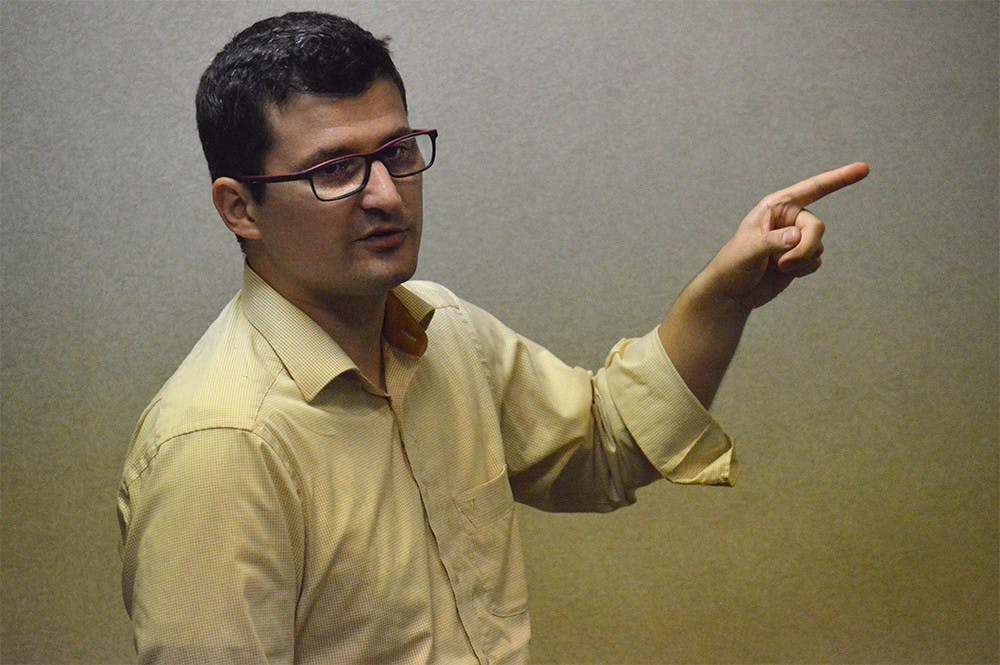Presented by the Hungarian Cultural Association (HCA), Associate Professor Csongor István Nagy spoke with students about the relationship between EU law, fundamental rights and Member States Monday in the Walnut Room at the Indiana Memorial Union.
Jessica Storey-Nagy, a doctoral student in the Central Eurasian Studies department and President of IU’s Hungarian Cultural Association, organized the event.
“Dr. Nagy is a visiting Fulbright scholar and will only be here for one year, so it only seems appropriate to pick his brain a bit while he’s at IU,” Storey-Nagy said. “He is also Hungarian and might offer a unique perspective on the current issues in the European Union considering Hungary’s current position in that organization.”
Leader of the Federal Markets “Momentum” Research Group at the Hungarian Academy of Sciences and an attorney-at-law admitted to the Budapest Bar, Nagy examined the status of human rights in the European Union, specifically its ability to protect and enforce them.
Nagy said although human rights are regarded as a cornerstone upon which the EU is built, it does next to nothing to secure these rights for its members.
“Sometimes when there are problems, the Commission intervenes and they try to push member states to comply with human rights standards, but they don’t really have the direct power to do this,” Nagy said.
While human rights protection is a precondition for accession as a Member State of the EU, Nagy said it is not a condition of membership.
“If you don’t protect human rights, you cannot be a member state, but if you stop protecting human rights, you will not be fired,” Nagy said.
Drafted by the European Convention and proclaimed by the European Parliament, the Council of Ministers and the European Commission in 2000, the Charter of Fundamental Rights enumerates a set of rights to which all EU citizens are entitled.
“The Charter is addressed to the bodies and institutions of the European Union and to the Member States only when they are implementing EU law,” Nagy said.
Nagy said one of the main problems is the lack of any substantial mechanism that would ensure Member States’ compliance with the EU’s Charter of Fundamental Rights.
“The European Union has no executive branch, it has no police force, it has no border control, it has no armed forces,” Nagy said. “They don’t have the human resources to carry out their laws.”
Nagy said in order to combat this, institutions within the EU, such as the European Commission, use provisions outside of the Charter in order to protect human rights.
“I think that anyone who studies the European Union will not be surprised to learn that the human rights topic is a hot one,” Storey-Nagy said. “However, it may be surprising to ponder on the fact that problems like these exist in Western and Central Europe.”
Storey-Nagy said examination of a nation or organization’s laws can provide a great deal of insight into the nation or organization in general.
“The EU is, for all intents and purposes, a progressive organization,” Storey-Nagy said. “Examining how it governs itself and the mistakes it makes can help scholars realize the immense amount of effort that goes into maintaining the civilized society we live in today.”






